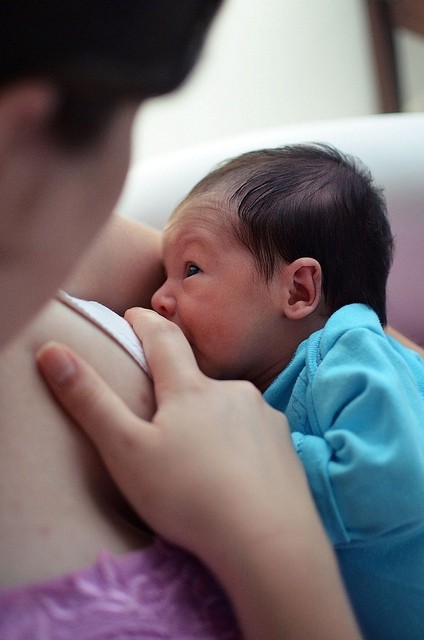Children of Diabetic Mothers are Less Likely to Be Breastfed: Study

Women with gestational diabetes are less likely to breastfeed their children than healthy mothers, according to a study.
Scientists from the Research Institute at Nationwide Children's Hospital and other renowned institutions found that the diabetes status of women is directly linked to breastfeeding habits. Babies of women with gestational diabetes and those diagnosed with the condition before conceiving are less likely to be breast fed or do so for a very short period.
For the study, experts used data from the pregnancy Risk Assessment Monitoring System conducted by the Centers for Disease Control and Prevention involving 73,000 women. Of the total participants 8.8 percent had diabetes during pregnancy and 1.7 had pre-pregnancy diabetes. Sixteen other variables like age, income and ethnicity were factored in to note the disparities in breastfeeding initiations and continuation among women with or without diabetes.
It was observed participants with gestational diabetes were more inclined to discontinue breastfeeding children after two months compared to those without diabetes. Subjects with pre-pregnancy diabetes were likely to start breast feeding their children and stop the habit after two months.
"We found that women with pre-pregnancy diabetes had the lowest breastfeeding initiation and continuation rates. However, women with gestational diabetes also had low continuation rates," said Reena Oza-Frank, study author and researcher at the Center for Perinatal Research in The Research Institute in a news release.
"This study indicates that women with pre-pregnancy diabetes need additional support both initiating and continuing breastfeeding, and women with gestational diabetes need additional support continuing breastfeeding."
The study noted 30 percent of mothers with pre-pregnancy diabetes reported the use of medications or illnesses as the main reasons to avoid breast feeding. Some participants did not want to feed their children assuming they produced insufficient milk and because of lactation difficulties. Gestational diabetes poses great risk to the health and well being of both expectant mums and babies who are mostly born obese and unhealthy. Breastfeeding can ward off health problems in mothers and children.
These findings point at women's lack of awareness and right information on neo-natal and post-natal care.
"Women with pre-pregnancy diabetes and women who develop gestational diabetes should get additional prenatal education on the increased risks their infants may experience and how breastfeeding can help reduce those risks," said Dr. Oza-Frank.
"Breastfeeding intention is often the strongest predictor of breastfeeding initiation, and by establishing intent early in pregnancy, successful initiation is more likely. Lactation consultants are an excellent resource and support for breastfeeding moms both immediately after delivery and beyond."
More information is available online in the journal of Public Health Nutrition.
May 21, 2014 04:50 AM EDT





